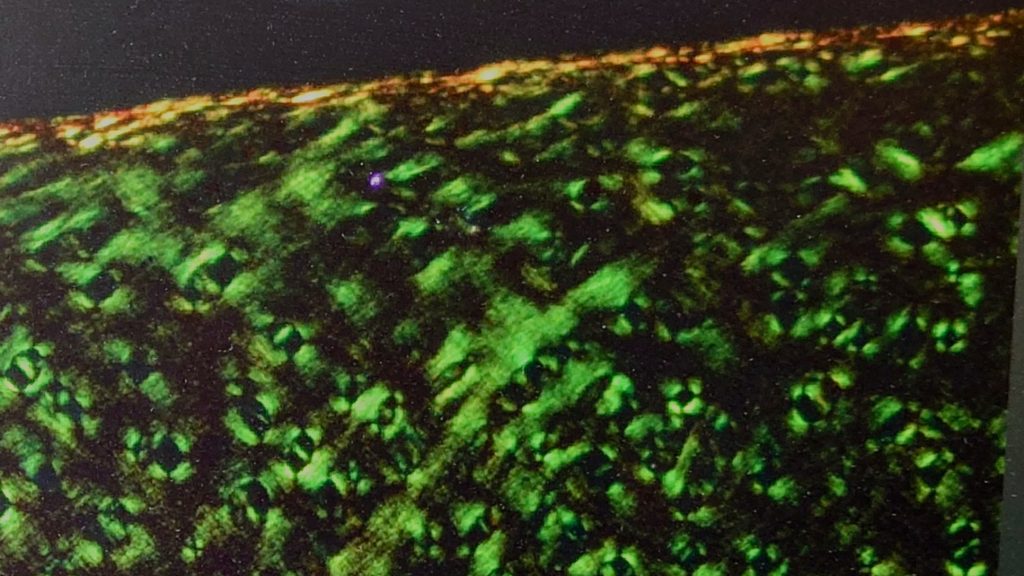
We’re playing with polarising microscopes today. Here’s an image of collagen fibers in porcine articular cartilage, acquired by João. Isn’t it awesome?
We’re back from a lovely visit to Manchester to celebrate the 30th anniversary of the Manchester Cell Matrix Centre. It had been a home to many matrix biology scientists including our very own Skeletal Research Group Prof Mike Briggs (1997-2012), Prof David Young (1997-1998), Dr Kasia Pirog (2001-2012), and Dr Ella Dennis (2011-2012).
It was great to see everyone, be reminded of the history of this great centre, see old friends and great science that continues to be delivered in Manchester.
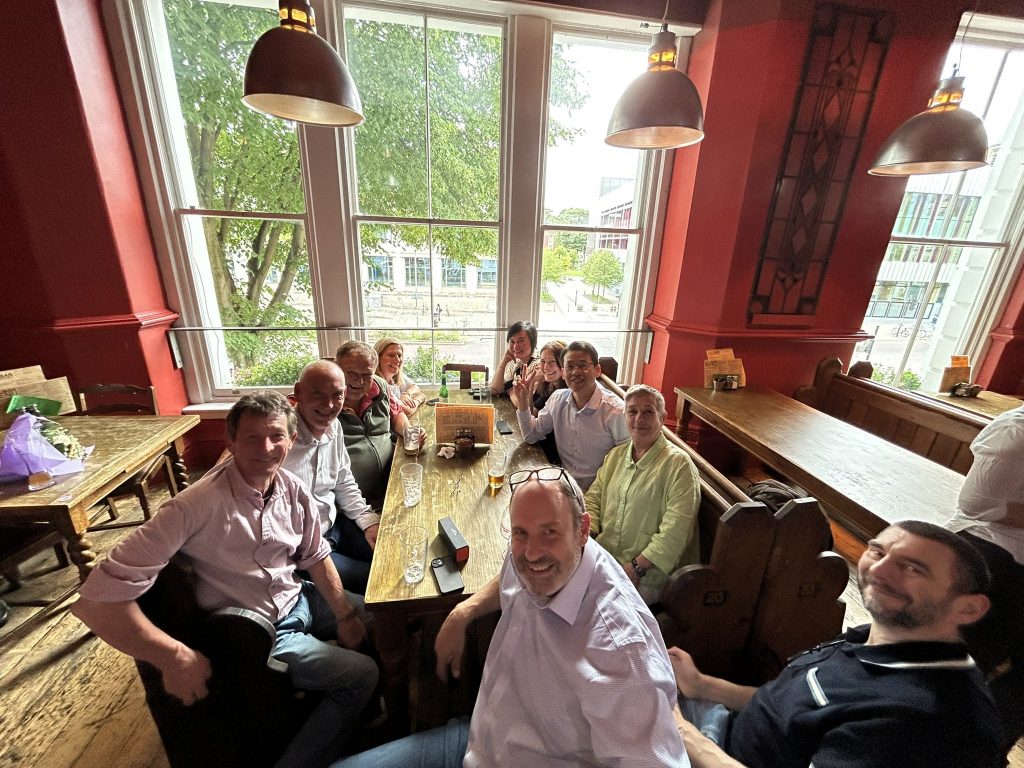
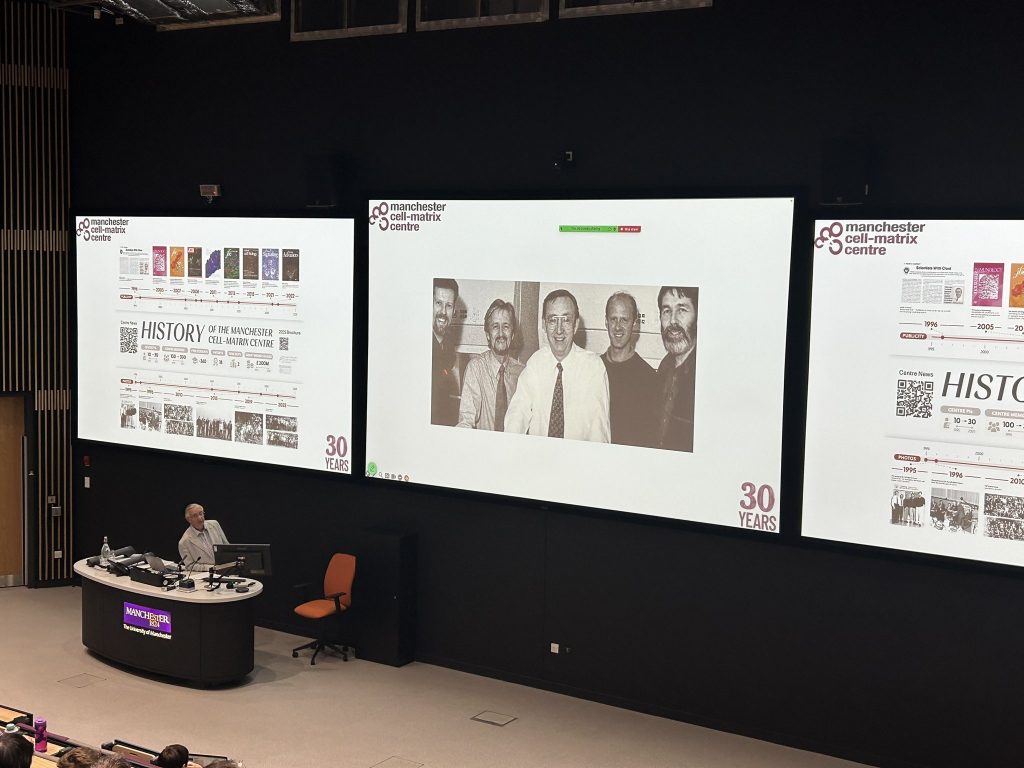
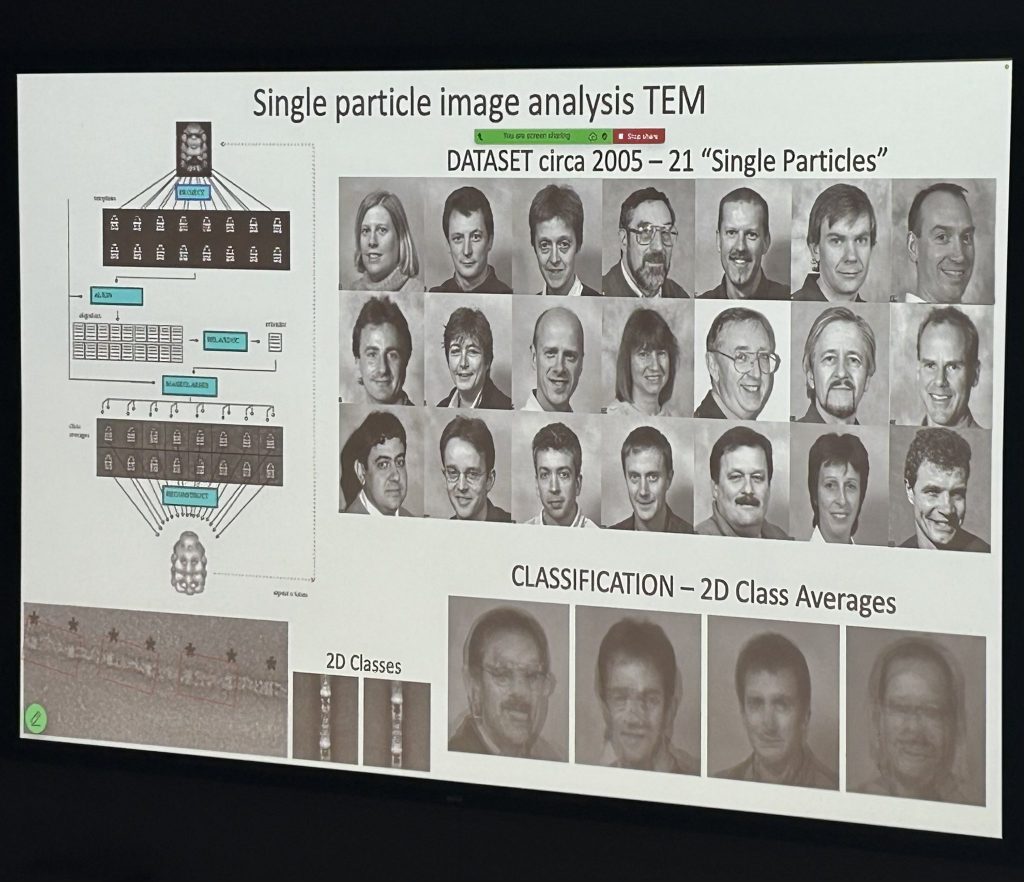
We did talk about science as well! We are looking forward to new collaborations and continued working together.
Happy 30th anniversary, Manchester Cell Matrix Centre! and well done!
Our PhD student Marc Farcasanu successfully defended his PhD thesis yesterday. The viva was conducted by Dr James Henstock from Northumbria University and Dr Priscila Melo from Newcastle University – thank you both for acting as Marc’s examiners.
Well done Marc!
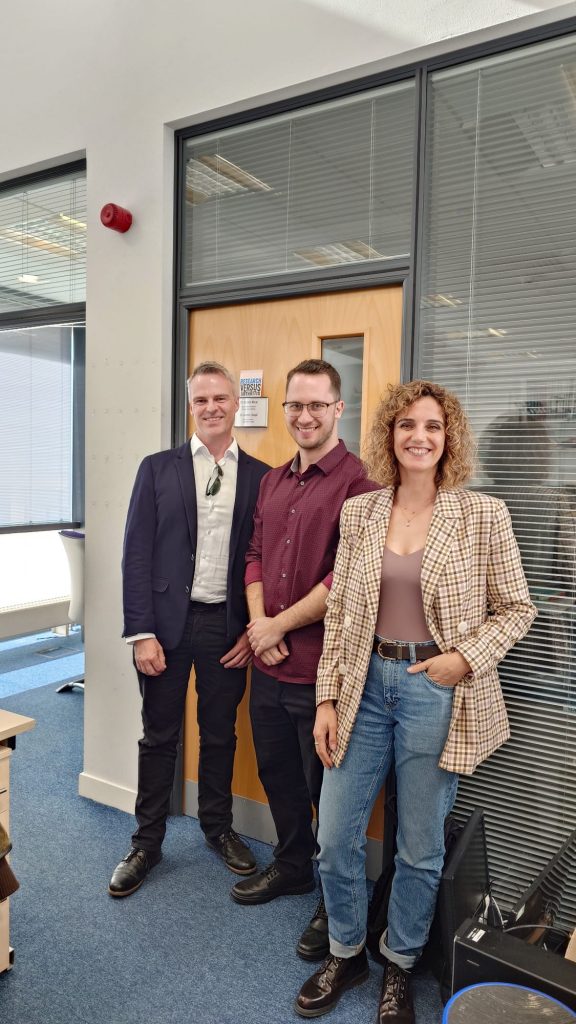
Congratulations on the successful defence of your thesis and the recent paper publication. It has been a pleasure working with you and we wish you all the best in your future endeavours. Please don’t be a stranger and keep in touch!
We heard a great talk by Dr Michal Dudek, a Research Fellow at the Wellcome Trust Centre for Cell Matrix Research at the University of Manchester, discussing the interplay between circadian rhythm, mechanical loading, osmotic and heat stress in cartilage and intervertebral disc. Thank you Michal for visiting us and sharing your work!
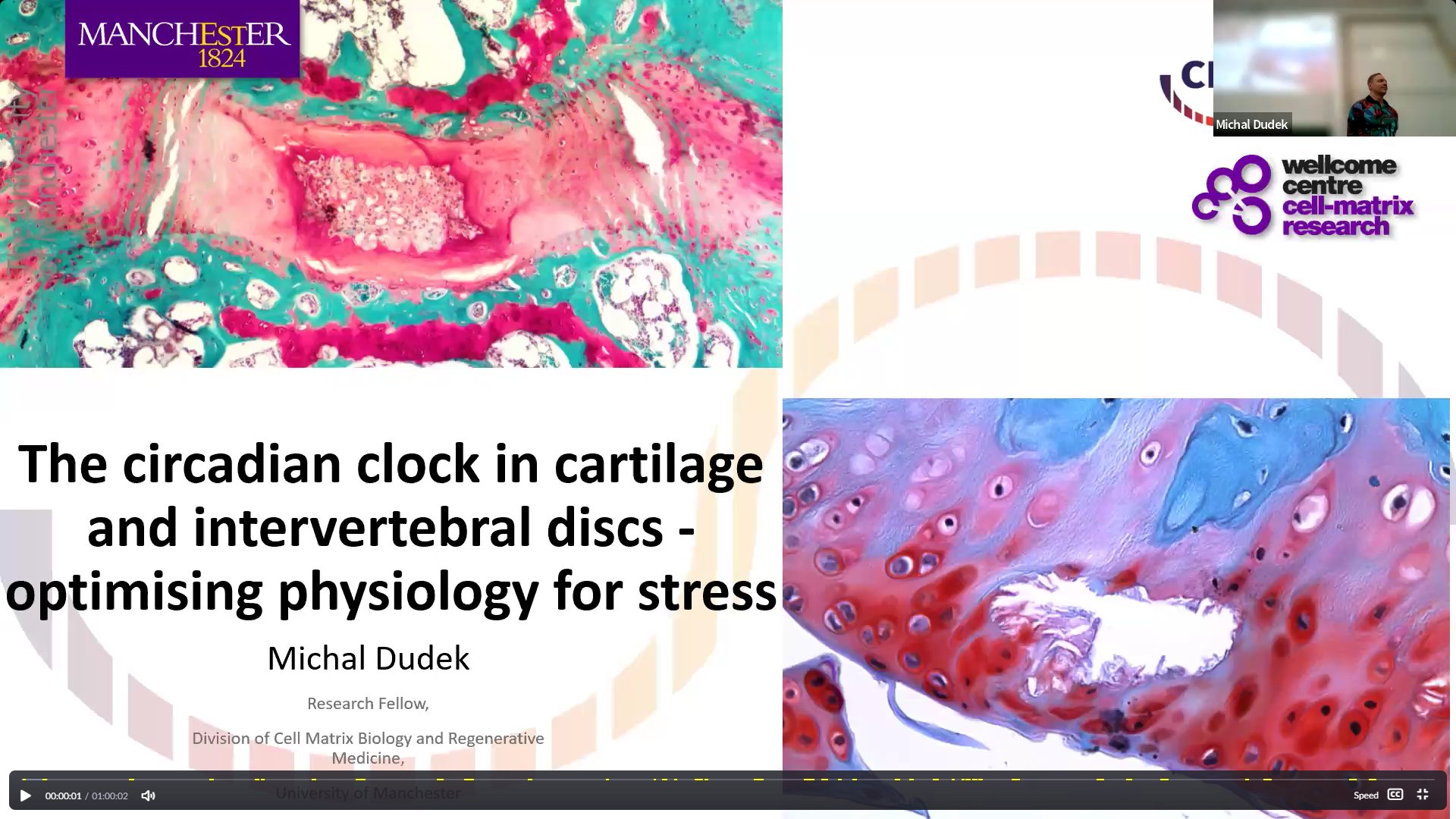
We had a great event, with thought-provoking presentations, great discussion and interesting hands on tables and demonstrations.

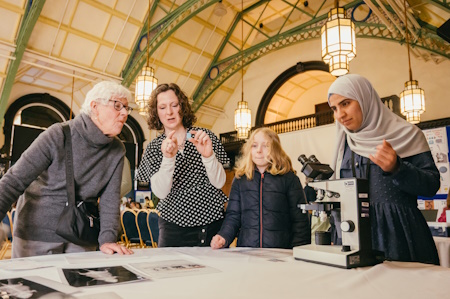
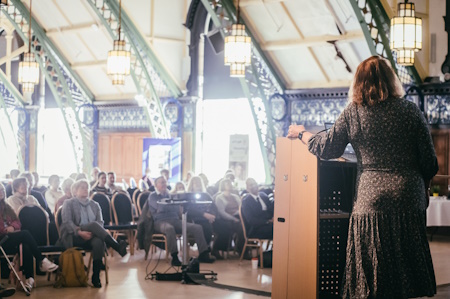
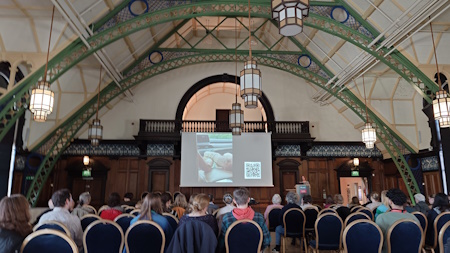
Thank you to all the presenters, patients and attendees for giving up their Sunday and celebrating the International Rare Disease Day with us!
Together, we can move mountains.
Rare is many,
Rare is strong,
Rare is proud!
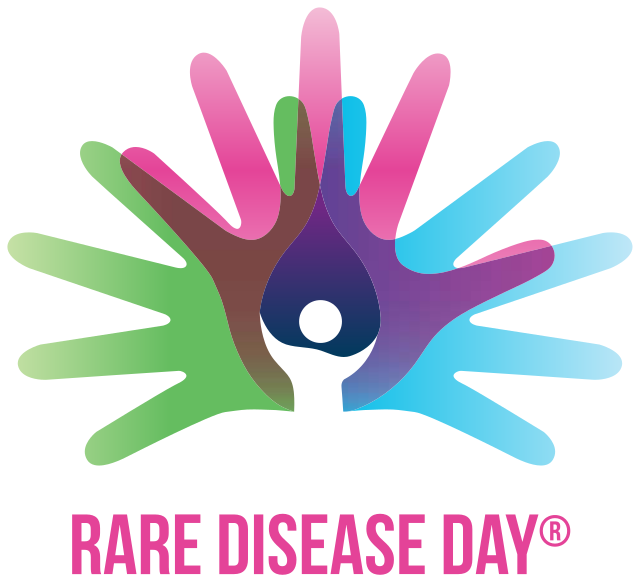
We had a great 2nd Annual Meeting of the CHANGE project 19th-21st of February 2025. It was a little bit cold, but Krakow is a beautiful city!
We had very productive 3 days talking about science, seeing the amazing progress our DCs have made, discussing science and future directions, and networking. We have also organised several training sessions: in biogerontology and detection of senescence (by Prof Johannes Grillari from our partner Evercyte), in ex vivo techniques and bioreactors (by Dr Linda Kock from Lifetec), in preclinical imaging (by Dr Marta Fabian from the University of Pavia) and in open science (by Dr Kasia Piróg from Newcastle University).
Our students have made great progress, completed many productive secondments, made great friends in their network and beyond, acquired new skills and learnt many new techniques. They also presented their data at national and international conferences, engaged with patients organisations and general public groups and events, and contributed to published book chapters, invited review publications, and original research papers.
We are extremely proud of our DCs and their achievements, and we can’t wait to see what the final year brings!
To find out more about our network, visit: https://change-msca.eu and follow us on BlueSky or on LinkedIn